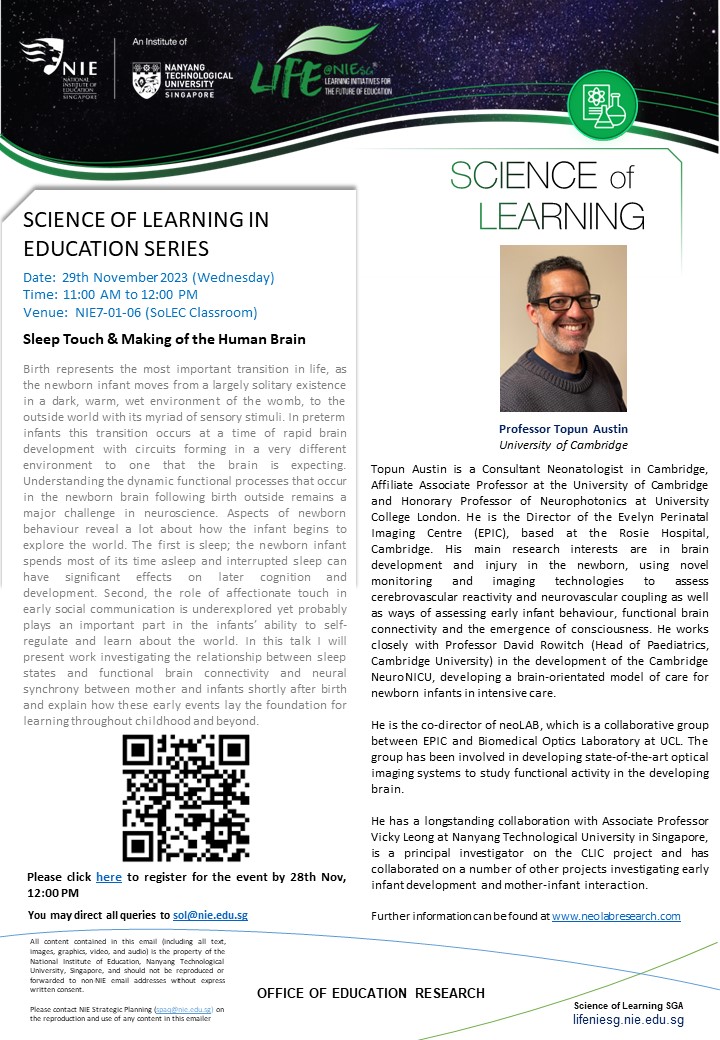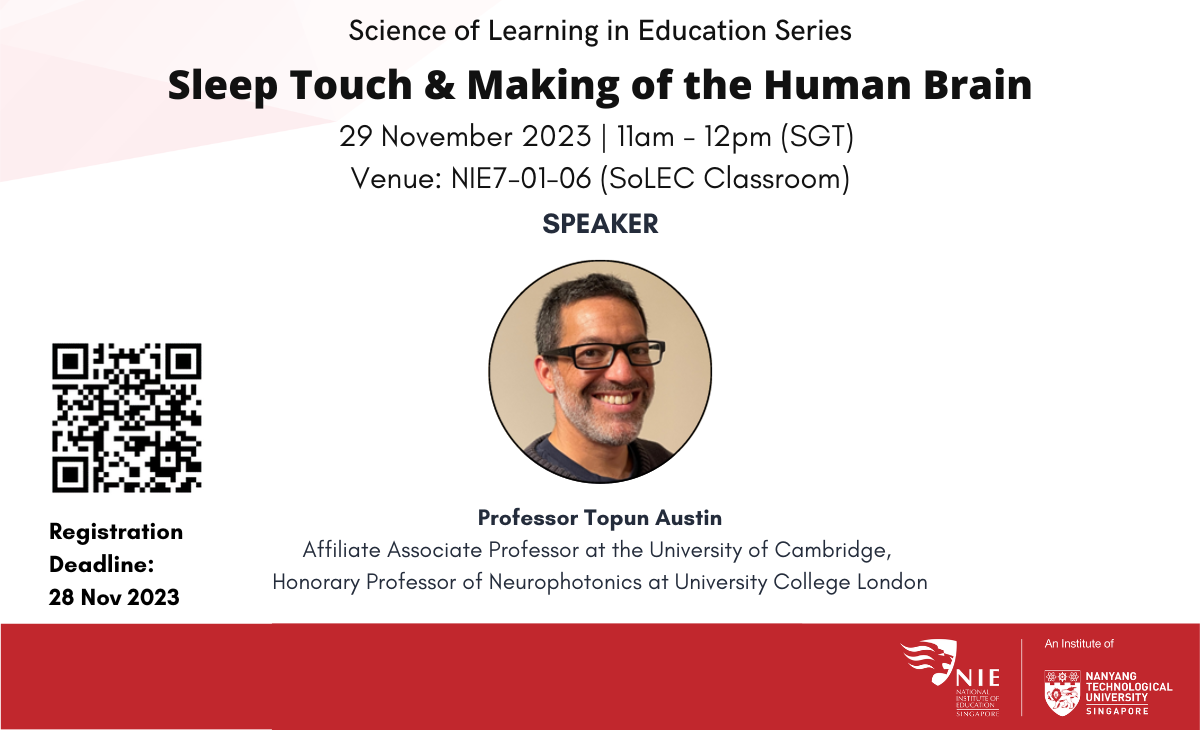SGA-SoL Seminar Series: Sleep Touch & Making of the Human Brain
Register here: https://survey.ntu.edu.sg/EFM/se/3B871640551EB186

Birth represents the most important transition in life, as the newborn infant moves from a largely solitary existence in a dark, warm, wet environment of the womb, to the outside world with its myriad of sensory stimuli. In preterm infants this transition occurs at a time of rapid brain development with circuits forming in a very different environment to one that the brain is expecting. Understanding the dynamic functional processes that occur in the newborn brain following birth outside remains a major challenge in neuroscience. Aspects of newborn behaviour reveal a lot about how the infant begins to explore the world. The first is sleep; the newborn infant spends most of its time asleep and interrupted sleep can have significant effects on later cognition and development. Second, the role of affectionate touch in early social communication is underexplored yet probably plays an important part in the infants’ ability to self-regulate and learn about the world. In this talk I will present work investigating the relationship between sleep states and functional brain connectivity and neural synchrony between mother and infants shortly after birth and explain how these early events lay the foundation for learning throughout childhood and beyond.
Topun Austin is a Consultant Neonatologist in Cambridge, Affiliate Associate Professor at the University of Cambridge and Honorary Professor of Neurophotonics at University College London. He is the Director of the Evelyn Perinatal Imaging Centre (EPIC), based at the Rosie Hospital, Cambridge. His main research interests are in brain development and injury in the newborn, using novel monitoring and imaging technologies to assess cerebrovascular reactivity and neurovascular coupling as well as ways of assessing early infant behaviour, functional brain connectivity and the emergence of consciousness. He works closely with Professor David Rowitch (Head of Paediatrics, Cambridge University) in the development of the Cambridge NeuroNICU, developing a brain-orientated model of care for newborn infants in intensive care.
He is the co-director of neoLAB, which is a collaborative group between EPIC and Biomedical Optics Laboratory at UCL. The group has been involved in developing state-of-the-art optical imaging systems to study functional activity in the developing brain.
He has a longstanding collaboration with Associate Professor Vicky Leong at Nanyang Technological University in Singapore, is a principal investigator on the CLIC project and has collaborated on a number of other projects investigating early infant development and mother-infant interaction.
Further information can be found at www.neolabresearch.com


